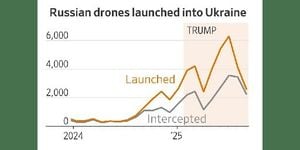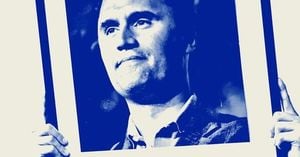The healthcare sector has recently faced increased scrutiny following significant data breaches affecting millions of individuals. Among these, the UnitedHealth breach stands out as the largest, impacting approximately 100 million people. This incident has shed light on longstanding vulnerabilities within healthcare data security frameworks.
Federal lawmakers confirmed earlier this year what had been suspected: the breach at UnitedHealth's subsidiary, Change Healthcare, exposed confidential medical and personal information of over one-third of the American population. This staggering number reveals just how pervasive our reliance on digital record-keeping has become and the vulnerabilities it presents.
The cyberattack was orchestrated by the ransomware group ALPHH, also known as "BlackCat." This group managed to infiltrate Change Healthcare's systems by exploiting weaknesses, especially after UnitedHealth did not enforce multi-factor authentication on its remote access service. The CEO of UnitedHealth, Andrew Witty, testified before Congress, detailing how the hackers accessed employee login credentials, which paved the way for their cyber intrusion.
The fallout from such breaches is severe, not just for the companies involved but for individuals whose information is compromised. The types of information hacked included Social Security numbers, driver’s license numbers, medical records, billing information, and much more. These data points are highly sensitive and, if sold on the dark web, can lead to identity theft or worse.
Change Healthcare acknowledged its massive internal disruption started when the attack occurred. Despite eventually notifying its clients and victims months after the breach took place, the revelations sparked outrage among consumers and reinforced skepticism about data privacy among American citizens.
Meanwhile, additional breaches have popped up, with notable incidents tied to law firms working with healthcare providers, which raises more questions about the chain of data responsibility. For example, the law firm Thompson Coburn reported it suffered its own data security incident, potentially compromising the protected health information of several patients of Presbyterian Healthcare Services.
These repeated breaches demonstrate how seemingly shielded institutions like law firms—often viewed as custodians of sensitive information—are also vulnerable to attacks, illustrating the interconnected nature of data security. When one link is weak, it threatens the entire chain.
To add to the fray, UnitedLex, another key player, has agreed to settle claims tied to their own data breach for $1.3 million. This settlement promises reimbursements of out-of-pocket expenses, cash payments, and services for monitoring identities for those affected. While some may gloss over the amount, it sparks discussion about how much compensation can truly alleviate the stress and worry of potential identity theft faced by employees and contractors impacted by this incident.
Compensation aside, this string of data breaches raises important questions about the protections afforded to consumer data, particularly within healthcare. Legislative bodies, typically slow-moving, may find increased pressure to enact stricter regulations surrounding data security. Currently, HIPAA laws set the framework for protecting medical data, yet many feel these laws are insufficient against today's sophisticated hackers.
Experts recommend several measures to help mitigate such breaches, advocating for stronger encryption of data, regular updates to security protocols, and thorough training of employees. This training should encompass recognizing phishing attempts and handling sensitive data cautiously, as often, human error is as detrimental as malicious hacking.
With each successive breach, individuals face rising risks. Many victims may well join class-action lawsuits to seek accountability and damages from healthcare institutions. Such legal remedies, facilitated by the growing recognition of data protection needs, stand to make waves amid growing frustration from consumers over how their private information is treated.
Falling under this spotlight, companies like UnitedHealth and others should take heed. If they wish to regain the trust of their patients, they'll need to reconstruct their security frameworks to be more resilient against future attacks, which require investment. The time is now to take steps not just to avoid breaches but to prioritize the safety of their customers’ most valuable personal data—after all, healthcare is nothing without the trust between providers and patients.
The ramifications of these breaches extend beyond individual consumers; they're sparking broader discussions about healthcare data security as we move toward more digitized health systems. It reveals the deep flaws present and carries lessons for institutions across all sectors. The real question now is whether organizations will heed this wake-up call and act decisively to safeguard against future threats.



